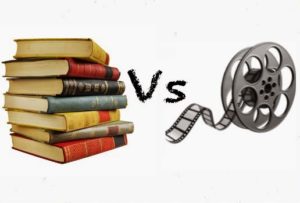 It’s one of life’s dilemmas to decide whether it’s better to read the book before seeing the movie or vice versa. Long ago I settled that question to my satisfaction.
It’s one of life’s dilemmas to decide whether it’s better to read the book before seeing the movie or vice versa. Long ago I settled that question to my satisfaction.
There are arguments for either side. If you see the movie first, your experience of the book will be tainted by the images you see on the screen. You’ll never know what images the book would have created in your mind. You’ll always see the sets and the actors in the movie as you read the book and never your own imaginings, even if the movie’s images and the author’s descriptions conflict.
Yet reading the book first and seeing the movie afterward usually results in being disappointed with the movie. The two media are worlds different from each other.
Movie vs. Book
A movie is told with images and sound. A book has none of those. A book is told with words and thought. You get deeply into the head of the point-of-view characters. You grow to know those people better than any other human being on earth except those you have the most intimate relationships with. Even then, that person may have secrets they’ve kept from you.
Movie adaptations struggle with the intimate experience of a novel. Unless the filmmaker resorts to the (usually) cheap tactic of narration or voice-over thoughts, he has to figure out a way to communicate the inner mind of a character through nothing but images, sound, and dialog.
Not only that, but a movie is a smaller medium than a book. Books can go on arbitrarily, filling in all sorts of detail, meandering here and there to enrich the experience of exploring its world and characters. Books can be and almost always are interrupted while reading. You put it down, you go to the bathroom, you eat, you sleep, you go to work. You can let it lie there for days before you come back to it.
Movies are severely restricted to the butt factor: how long can you stand to sit on your butt watching a movie before you get too restless to endure it? Generally movies are restricted to one-and-a-half to two hours. The occasional epic can rise to three hours. The film Gettysburg was a whopping four-and-a-half hours—and I didn’t know that going into the theater. Holy crap I was exhausted when I got out!
It’s virtually impossible to put everything into the movie that’s in the novel. The screenwriter has to mercilessly cut the story to its essential elements. I have one screenwriting friend who said his approach was to choose the ten most important scenes in the book, then throw the book away and write the story around those.
All these reasons caused me to conclude that you’re likely to hate the movie if you’ve read the book first. That’s why, if you have a choice, you should always see the movie first.
The movie will corrupt the images the book would otherwise have inspired in your mind and will plant expectations in you that the book is not likely to deliver. But these are just about the only disadvantages to seeing the movie first.
The advantages are, when you read the book after seeing the movie, you’ll have a richer experience, regardless of how similar or different the movie is to the book, simply because the book will have more in it. More detail, more thoughts in the minds of the characters, more plot points. It will be a different and a richer experience, making it worth reading even if you’re disappointed at the differences between it and your favorite movie.
See the movie first!
Five Case Studies

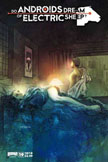
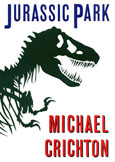
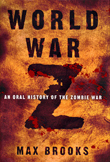
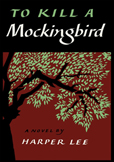
I’ve been on a binge lately reading books from popular movies that I’ve seen. My binge consisted of four books where I’d seen the movie first. I’m going to compare the movies to the books, analyze how similar or different they are from one another, then announce whether the movie or the book is better.
I’m going to include a fifth movie and book that was not part of my binge, that I’d seen and read years ago, because both the book and film are excellent, classics, and fascinating to compare.
A Clockwork Orange
Stanley Kubrick was my movie-making idol. He’s the one that inspired me with a fascination for filmmaking. This was after seeing 2001: A Space Odyssey. What I didn’t know until much later was how very different each of his movies were. He never came close to repeating himself.
When his next movie came out after 2001, I was excited to see it. Except it was rated X back then (now rated R), and I was trying to be a good boy! It was many years later that I saw it, and it wasn’t remotely like the movie that made me idolize him. But it was as genius as my beloved film.
A Clockwork Orange is a satirical, surreal, tongue-in-cheek story about a future where law and order in the United Kingdom has broken down and young hoodlums rule the night. The film is full of graphic violence, graphic sex, graphic rape, and Nadsat, the slang dialect that the youth use with each other.
Alex is the main character and the head droog of a four-man gang. He goes out working odd jobs to earn some cash—so he tells his P and M (father and mother)—but in reality he and his gang cavort and beat up and steal and rape.
Many more scenes of mayhem fill the screen. The whole point of the story is to explore violence and what society should do about it and where free will and morality enter into all this.
When I read the book, it was not what I expected. By that I mean it was exactly what I expected, which was not what I expected. Kubrick’s film is one of the most faithful adaptations of a novel I’ve ever encountered. It follows the book almost scene for scene. A real departure from Kubrick’s adaptation of Stephen King’s The Shining, which King detested.
Naturally there are differences. Like, book Alex loves lots of different classical music composers, while movie Alex fixates on “Ludwig van.” Book Alex is much younger than movie Alex. I’m sure that’s because Kubrick wanted to show young adult Alex having sex with young adult women, not the book’s 15-year-old Alex having sex with 10-year-old girls. (Or maybe he did want to show it, but knew it would never go over.) Small changes like that.
The first scenes of violence in the book do not appear in the movie. Otherwise it’s close to a one-to-one correspondence between book scenes and movie scenes. Even right down to the last line of the movie.
Except for one whopping, glaring exception. The entire last chapter of the book is not in the film.
There’s a reason for that. Turns out the American publication of the book (author Anthony Burgess is British), omitted that last chapter. This is something Burgess was none too happy about, which comes through clearly in his introduction to the edition I read, which he titled “A Clockwork Orange Resucked.”
He laments how this novel is the one he’s remembered for, even though he considers it one of his lesser works, and that has to be primarily because Stanley Kubrick made a movie of it. The movie, he says, has plagued him his whole life, not least because it followed the American publisher’s circumcision of the final chapter.
The edition I read is the first American edition where the last chapter is finally restored. I couldn’t wait to see how the author really wanted the story to end. It was interesting to find out. But perish the thought if you think I’m giving out any spoilers.
Nevertheless, I think I’m glad Kubrick left off the last chapter. I don’t think it would have fit the feel of the rest of his movie. That punctuating last line is the perfect ending for the tongue-in-cheek film Kubrick made.
But, true to my philosophy of seeing the movie first, it was interesting to read that final chapter and see how Burgess wanted the story to end. Whereas if I’d read the book first, I probably would have been outraged that the movie left it out.
It’s hard to say whether the film or the book is better, because they’re so similar. They are the same story in all the important particulars. I guess I’m inclined to give the movie an edge because—you know—Stanley Kubrick.
Do Androids Dream of Electric Sheep?
The next book I read was adapted into a stunning film that stands as a classic with a large cult following today. My experience with the film was probably like most people’s: when I first saw it, I wasn’t sure what I thought of it. It was dazzling and beautiful, but very strange.
But as the days went by, it started growing on me, and I wanted to see it again. From that it grew into one of my favorite films.
It also happens to be the first major film that showed us Harrison Ford could act dramatically. He was fresh off of The Empire Strikes Back and Raiders of the Lost Ark, playing a role we didn’t expect, which may be why he was able to break out of the typecasting that plagued Mark Hamill and Carrie Fisher.
One of the most memorable and moving scenes is near the end, and being in that position, obviously contains spoilers for those culturally handicapped enough to have never seen the film. Okay, okay, I guess I do throw in a spoiler now and then, but everyone’s seen it anyway, right?
This scene is an example of how the book differs from the movie. For a long time, Philip K. Dick was a respected science fiction writer among science fiction enthusiasts, but virtually unheard of in the mainstream.
Except for film producers for some odd reason. Some of the most well-known megahits are adaptations of Dick’s books, like Total Recall and Running Man and Minority Report. His book Do Androids Dream of Electric Sheep? is the basis for Blade Runner, a title invented for the movie I still don’t understand, since Decker went around blasting androids with a gun, not running a blade through them.
The book has androids, the book has Decker, the book has electric sheep—yes, it really does. People are obsessed with owning animals because the fallout from a nuclear war has made animals a premium, a status symbol. Those that can’t afford an animal—and that’s like saying those that can’t afford a Rolls Royce—purchase “electric” animals, which are actually the animal equivalent of androids that are indistinguishable from real animals. Decker’s motivation to hunt androids is to earn enough money to buy a real sheep instead of the electric one he owns. Actually he’d settle for whatever animal he can afford.
And that little overview cuts right to the core of the difference between the book and the movie. The book is superficial with somewhat dreary characters. The androids are boring as hell, and there’s an extra one not found in the movie that Roy Batty is married to. Almost none of the cool things in the movie happen in the book.
It’s a no-brainer which is better. Of course the movie’s better. Beautiful, haunting, examining the paradoxes of existence and consciousness and the definition of life to a depth the book can’t even dream of. (I guess it’s too busy dreaming of electric sheep.)
Much more interesting is the question, to narrate or not to narrate? (William Shakespeare)
The theatrical release had Ford narrating much of the story because the producers were afraid nobody would understand what was going on. And frankly, I’m not sure they were wrong. I’m kind of glad I saw the narrated version first, but forever after I prefer the non-narrated version, which also excludes the tacked-on happy ending the producers thought we poor dumb movie-goers needed instead of the striking ambiguous ending of the later cuts.
The different versions of Blade Runner are like seeing the movie before reading the book. I’ll never know how I would have imagined everybody and everything reading the book by seeing the movie first. And I’ll never know what I would have thought of the movie without the narration and happy ending. Unless I meet myself in an alternate universe who did see that version first.
Hey, it’s a Philip K. Dick story. Anything could happen.
Jurassic Park
As a kid, I’m sure I was like every other kid with my biggest fascination. Okay, it probably tied with another of my fascinations: planets and outer space.
But dinosaurs—how can you beat that? Big, breathtaking monsters that really existed! Not posers like Godzilla or King Kong.
Obsessing over dinosaurs is like watching a horror movie. You can get your hair prickling on end and your adrenalin rushing and feel the excitement at the danger—all the while safely tucked away in a theater seat 65 million years in the future. But, dangerous as they were, who wouldn’t want to see a real dinosaur?
Alas, it’ll never happen because they’re all dead and gone, time travel will never exist, and the Earth has been thoroughly explored so there’s no Lost Worlds left where they might still be hanging out.
Until this guy named Spielberg came along.
Sure, the book was written by Michael Crichton, but those book beasts still dwelled in our imagination where dinosaurs had remained our whole lives. We’d still never actually see them with our physical eyes. Until you-know-who came along.
Who doesn’t remember the moment? Like when Kennedy was shot, or when the Challenger Space Shuttle blew up, or when the World Trade Towers came down? The first moment we ever saw a for-real live dinosaur?
I know, I know. It wasn’t really a real, live dinosaur. But it sure looked like one! It was as good as we’re ever gonna get. And that was pretty damn good. (Just wait until you see the T-rex!)
Spielberg fulfilled every kid’s wildest dream. Not even his silly aliens in Close Encounters and E.T. come close, because they were invented, and fairly dorky at that. We know any aliens we find really won’t look that way. But he gave us real live (looking) dinosaurs!
Then there’s the book. I’d had a hankering to read it for a long time, and finally got around to it as part of my binge.
The movie is so much better.
Now understand, while I like Spielberg as a director, he does tend to “Spielbergize” his movies: throw in a few little-too-cutesy moments (or entire movies like with E.T. and Close Encounters). He does that with Jurassic Park too. Yet in spite of that, the way he tells the story is leaps and bounds better than Crichton’s effort.
Crichton’s characters are simply unpleasant. Every one of them is stupid beyond the level they should be, considering their expertises. Every one of them are two dimensional—existing only to serve the story and to make pages-long infodump speeches to help us mere mortals understand the science.
The T-rex and velociraptors are borderline magical. Over and over, T-rex constantly appears exactly where Grant and the kids are, from one page to the next. He couldn’t have done better if he were Prince Humperdinck hunting them, who can stalk a falcon on a cloudy day.
The velociraptors are not just intelligent for dinosaurs. They’re intelligent for Sherlock Holmes. They’re Jurassic Supermen who can leap tall buildings in a single bound. Well, not tall exactly, but buildings.
The escapes are as narrow and preposterous and dependent on nick-of-time coincidences as John McCain’s escapes in Live Free or Die Hard.
In short, the book is unbelievable.
Spielberg’s characters and beasties and plot points are actually realistic—certainly by comparison to the book. He makes us believe we’re watching real dinosaurs. Not once did I feel like I was reading real dinosaurs.
Hammond, a likeable guy with a conscience in the movie, was a total idiot dick in the book. You wish he’d be eaten. The girl in the book, younger than her brother instead of older like the movie, is there purely to cause mayhem by being a whiny, noisy little brat so dinos can hear her and threaten them even more.
The message of the book is how dangerous screwing with genetics can be, but the breakdown of Jurassic Park that causes all the trouble is 100% the result of the humans being monumentally stupid or amoral, not because Jurassic Park is inherently unstable like Malcolm tries to preach. I suppose that was part of Crichton’s message, that genetic development was dangerous because scientists are being careless about it, but how about a little finesse, dude? Put aside the bludgeon for a while.
The book also suffers from being a bit dated now. When it came out, it was a new and shocking realization that dinosaurs were related more to birds than reptiles. Now that knowledge is old hat. Geez, nowadays dinosaurs even have feathers! Yet the book spends every other page going, “Oh my God! They’re acting like birds!” and “Oh my God, they’re flocking like birds!” and “Oh my God! They’re migrating like birds!”
It was entertaining to read the book and see where the whole idea came from, and I certainly love Crichton for coming up with the whole idea in the first place, but if you want to experience real people trying to control real dinosaurs in real circumstances, watch the movie.
Plus the book has no really really cool John Williams music. And Malcolm never once says, “Must go faster!”
World War Z
The next movie and its accompanying book dive right into the heart of one of the biggest cliches at work in the 21st century—zombie apocalypse! It’s such a huge cliche that I never want to endure another zombie story again!
Unless it’s really good. Or really unique in its approach to the topic.
The movie World War Z achieved that, sorta kinda. It has fast zombies (but so does Zombieland) and it has lots of them (but so does Walking Dead with its herds) and the story is at the level of a worldwide struggle. Okay, that one’s pretty fresh, but Fear the Walking Dead does gives us a sense of a worldwide apocalypse.
Other than that, yeah, zombies. We’ve seen ’em a bazillion times before. Just never a bazillion (CGI) zombies at once.
So that’s cool…enough. And there’s Brad Pitt, which is always cool…pretty much. And if you’re getting a “meh” feeling from me, then you’re insightful, because that’s how the movie left me. Cool enough, entertaining enough, but now what shall we do, now that the movie is over?
I started this article with a movie that was a faithful adaptation of the book, and am now ending my binge read with a movie that is utterly unfaithful to the book. In the book, there were zombies (but not fast ones) and it was a worldwide struggle (hence the title) and that’s about all there was in common. That was literally all there was in common, except for the title.
The book presents itself straightfaced as an account of the global zombie war from eyewitnesses around the world. There is no Brad Pitt. There is no main character, unless you count the interviewer who says very little and we learn little about.
The book is a written counterpart to a documentary film where people are interviewed telling their stories, and all together those stories present a picture of what happened during the zombie war from beginning to end. Such a device for telling a story can be a bit off-putting to read, and I wasn’t sure I’d like it. I won’t deny that it’s no casual reading. It takes time to get through it.
But, oh, the time is worth it! You will never experience a zombie apocalypse more authentically than by reading this book. You know if it ever happens, it’ll unfold exactly like the book describes. These are real people telling real stories of real events in a multi-year worldwide zombie war. You’ll have to keep reminding yourself it’s only a story. Author Max Brooks did a masterful job of bringing the experience to life, and did his homework to make it feel totally authentic.
So which is better, the movie or the book? No contest! The book by leaps and bounds. The movie adaptation is a travesty of the book, bastardized into a summer blockbuster so Hollywood could rake in more of those teenage dollars.
The movie adaptation should have been an independent film faithful to the book, using an approach something like District 9. It should have been a pseudo-documentary, showing the characters being interviewed and cutting away to their stories being told visually. That would be a movie where narration is precisely the right choice.
None of the stories are boring, and many of them are quite moving. The matter-of-factness in which the interviewees tell them only heightens their impact, as we hear in simple language the horrors these people endured. Each interviewed person is a real character with their own personality. These are real people experiencing a real holocaust.
It breaks my heart that we’ll never see that movie. It would be too good for Hollywood.
To Kill a Mockingbird
This marks the end of my binge reading, but I want to add one more film. This is my favorite Gregory Peck role and a powerful story told from the point of view of a young girl. Even among classics, this is a classic film, one of the greatest ever made, tackling issues that still plague our society today. And yet it’s full of tender moments and the sweetness of everyday family life.
I’d seen the movie multiple times before I read the book. I decided it was time to read the classic novel that the classic movie came from, not knowing how they’d compare. They compared well. The movie story is faithful to the book. Everything in the movie is in the book.
But not everything that’s in the book is in the movie. The book tells much more of the story that couldn’t fit in the limited space of a film. I loved the movie before I read the book, but afterwards I felt like the movie was anemic by comparison. The book was so much richer. It made the film pale by comparison. That was a daunting accomplishment, because there’s nothing pale about that movie.
I read the book exactly once, but I’ve watched the movie a few more times since then. I regained my love for the film. But I also love the book where the story came from and the depth to which it tells that story. They both have the same story, the same spirit, the same impact, and the same quality. I’m glad they both exist.
To Kill a Mockingbird is the best example of seeing the movie before reading the book. I hate to think that I might have read the book first, then felt the movie was disappointing by comparison. Instead, I was able to enjoy the film and still do, but I could also go to the book and dig deeper into the story and walk away satisfied.
Always see the movie first!